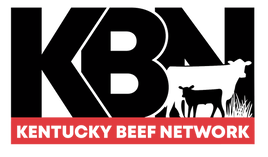Grazing Considerations
Grazing Considerations
Getting a Grazing Plan Together
Sometimes in life we find ourselves barreling forward without much of a plan. This often gives us a false sense of making progress. In reality, it is very difficult to get somewhere if you don’t know where you are going.
Importance of Water
Water is the most important nutrient for animals, and it is essential to ensure that animals have ample access to clean water. Having water available to livestock allows for optimal animal performance and health. Dry matter intake is directly related to water intake, and the less an animal drinks, the less feed it will consume.
Heat Stress
Keeping cattle cool and comfortable is important for maintaining weight gain, milk production and reproductive performance. The temperatures that cattle prefer, 40 and 65°F, are cooler than what humans prefer, which means cattle display signs of heat stress even in what we would call “cool” temperatures.
Transition from Stored Feed to Pasture
Pastures have greened up and are once again producing lush, high quality forages for grazing. Although it may be tempting to put livestock back on these pastures right away, certain precautions should be taken to protect the livestock and the new forage growth.
Rotational vs. Continuous Grazing
In Kentucky, having cattle that graze is how many farmers provide additional income for their families. Continuous grazing has been the traditional way to graze cattle over generations, but there may be a way to improve your grazing system and make your operation more profitable. An alternative to continuous grazing is a method called rotational grazing.
Creep Grazing
Getting beef calves to gain weight as efficiently as possible is every producer’s goal, and creep feeding calves can help achieve that. Two main types of creep systems are used: creep grazing and creep feeding a concentrate-based supplement. Creep grazing pastures can add pounds to a calf’s weaning weight.
The Importance of Shade and Water
Heat stress in cattle is an issue that all Kentucky cattle farmers face during the summer months. The high temperatures and humidity that are common to Kentucky are the main cause of heat stress. Other causes include direct radiation and low air movement. Endophyte infected fescue, which is found in the majority of Kentucky pastures, is another source as it increases body temperatures.
Feeding Co-Product Feeds to Cattle on Fescue Pastures
Tall fescue covers 5 million acres of hay meadows and pastures in Kentucky and has been the predominant forage in the state for over 50 years. Popularity of the grass is due to its productivity, persistence, and low cost of management.
Supplementation with Soybean Hulls Can Cost-Effectively Boost Weight of Stockers on Toxic Fescue Pasture
Ergot alkaloids produced by a fungal endophyte that infects most plants of ‘Kentucky 31’ tall fescue can induce fescue toxicosis. Cattle exhibiting signs of toxicosis: 1) tend to maintain rough hair coats, 2) have elevated body temperatures that causes cattle to be vulnerable to severe heat stress, and 3) have reduced prolactin hormone concentrations that can reduce milk yields by nursing cows.
Grazing Systems
Two main systems are used when grazing livestock. Continuous grazing is usually a low management system where livestock are allowed unrestricted, uninterrupted access to the same pasture for the entire grazing season or year. Using rotational grazing instead of continuous grazing is strongly suggested for numerous reasons.
Preparing for Summer – Fighting Heat Stress with Shade!
Kentucky’s high temperatures and humidity can greatly impact herd health. Cows often show decreased conception rates, decreased duration and intensity of estrus, decreased calf birth weight, and increased early embryo mortality when experiencing heat stress.


